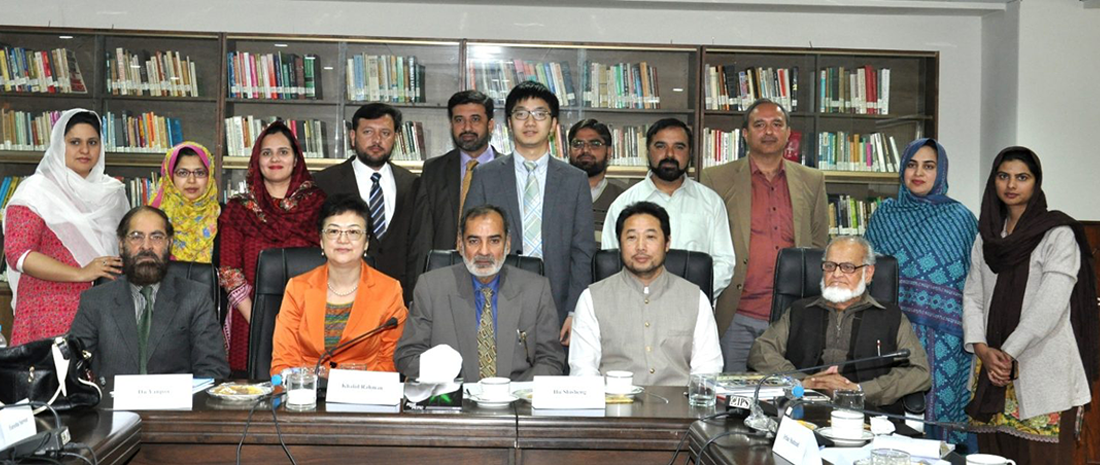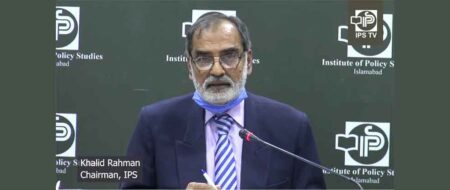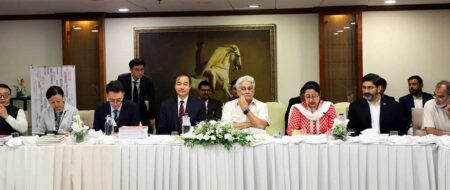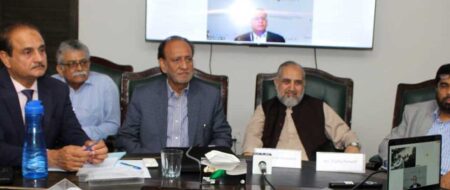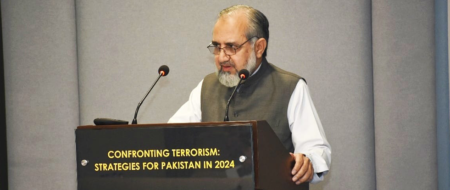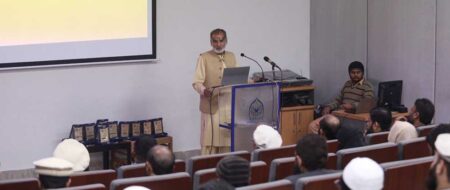Delegation from CICIR, China visits IPS
Emerging Pak-China-Russia nexus termed ‘scenario-changer’ for South Asia
Terming CPEC a ‘scenario-changer’ for South Asia rather than being just a ‘game-changer’, Chinese experts on the region inferred emerging nexus between Pakistan, China and Russia to be a defining development for the region’s flourishing future.
 They were deliberating at a session on ‘Trump’s South Asia Policy: Quadrilateral interaction between Pakistan, China, India and USA and Challenges to CPEC’, held at Institute of Policy Studies (IPS). The session held on March 3, 2017 was partaken by a three-member delegation from China Institutes of Contemporary International Relations (CICIR) – China’s largest, oldest and most influential research institutes for international studies, overseen by the Central Committee of the Communist Party of China – which was led by Hu Shisheng, director, CICIR’s Institute of South, Southeast Asian and Oceanic Studies, China. The research faculty of IPS was represented by Lead Coordinator Irfan Shahzad, senior associate Brigadier (r) Said Nazir Mohmand and researchers Fareeha Sarwar and Waqar-un-Nisa as key discussants.
They were deliberating at a session on ‘Trump’s South Asia Policy: Quadrilateral interaction between Pakistan, China, India and USA and Challenges to CPEC’, held at Institute of Policy Studies (IPS). The session held on March 3, 2017 was partaken by a three-member delegation from China Institutes of Contemporary International Relations (CICIR) – China’s largest, oldest and most influential research institutes for international studies, overseen by the Central Committee of the Communist Party of China – which was led by Hu Shisheng, director, CICIR’s Institute of South, Southeast Asian and Oceanic Studies, China. The research faculty of IPS was represented by Lead Coordinator Irfan Shahzad, senior associate Brigadier (r) Said Nazir Mohmand and researchers Fareeha Sarwar and Waqar-un-Nisa as key discussants.
Shisheng said that while he had no doubts that the Chinese dream of CPEC was fast becoming a reality which had immense potential for all its stakeholders. Transparency as well as expectation management must be induced as an integral part of all CPEC projects to ensure their smooth progress, he added.
Another Chinese delegate Lin Yiming, in his presentation, referred to decades of close and cordial relations between China and Pakistan stating that the relationship, which was always built around deep-rooted trust and mutual respect, was only expected to get stronger with time, especially with the advent of CPEC. He believed that China’s stance and policy over Pakistan was certain to remain equally amiable in distant future as well.
Du Yanjun, the special assistant to CICIR President, viewed that the emerging nexus of Pakistan, China and Russia will be yet another important outcome of CPEC along with many others. She maintained that the Chinese were eagerly looking ahead for this trilateral collaboration and its possible outgrowths.
DG-IPS Khalid Rahman, who was chairing the session, concluded the discussion stressing the need for developing business dispute settlement mechanism among Pakistan and Chinese stakeholders to make it more transparent and inclusive. A patient and positive attitude was mandatory from both sides, according to him, if they were to take this unique and precious relationship to a new level of amity as well as to reap the benefits of this cordial association mutually.
It was mutually felt by the discussants from both sides that CPEC should not be allowed to be used as a political card, instead it should be seen and projected as a mean of economic growth for both the nations. They also agreed to stay wary of any possible internal and external factors which might want to impede the venture for vested interests.


